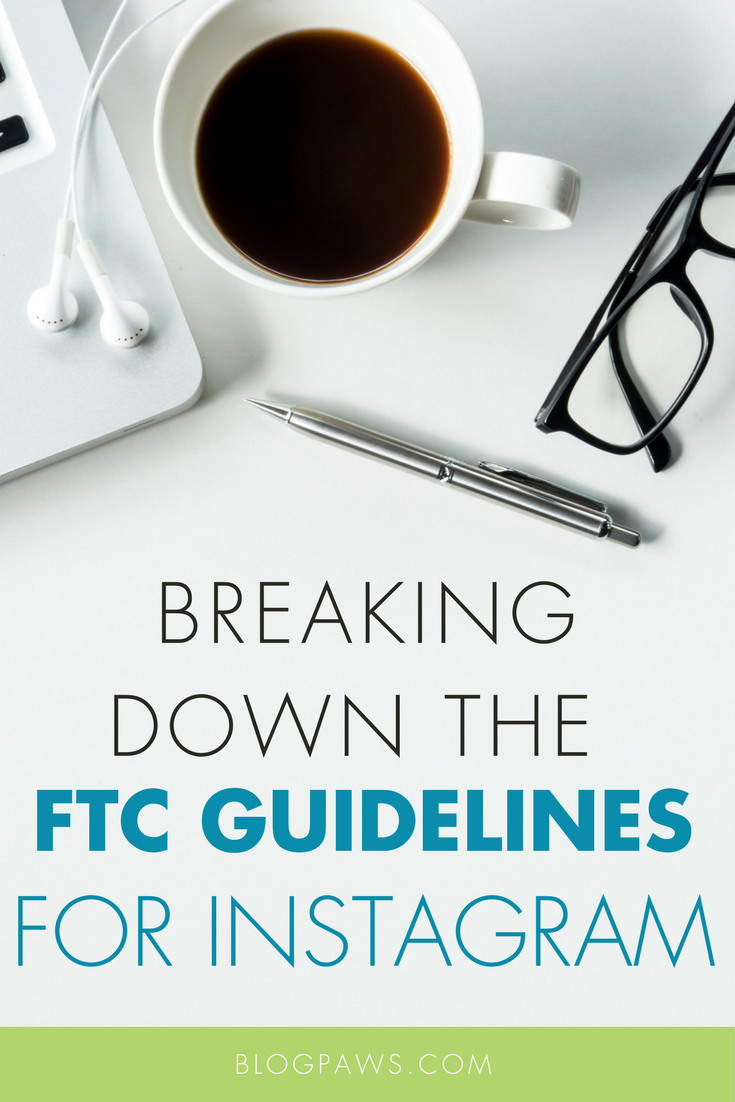Breaking Down the New FTC Guidelines for Instagram
Did know you know: The FTC recently sent out more than 90 letters to influencers and marketers who weren’t disclosing their paid relationships appropriately?
Disclosures are a vital piece of working online, not just because of the FTC guidelines, but because it’s an important step in building an honest, open, trusting relationship with your audience. Disclosures provide transparency, and skirting the rules can cause big problems for you in the long run, as those 90 influencers discovered.
However, the FTC guidelines are super simple. “It’s taking the guess work out of disclosing,” said Felissa Elfenbein, BlogPaws’ Director of Influencer Marketing. And, recently, the FTC unrolled more specific guidelines for social media.
Here, we break down the new FTC guidelines for Instagram:
- The key phrase to keep in mind for all disclosures, whether on Instagram or any other platform is: “clear and conspicuous.” All disclosures must be both clear and conspicuous.
- The disclosure of a paid relationship on Insta can be #ad or #sponsored, though the FTC prefers #ad. The FTC’s FAQ page also suggests AD.
- Unless someone clicks “more” to read a full caption, most IG apps only show the first three lines of text as a user scrolls. So the disclaimer has to be within those three lines.
- “It must not be disguised within a long string of hashtags… that’s not clear or conspicuous,” Felissa said. The new requirements are for the disclosure to be within the first 90 characters.
But I See Instagrammers Who Aren’t Doing It! Why Should I?
According to Felissa, “It’s protecting yourself and protecting the brand you’re working with. So, maybe you don’t have a million dollars to be sued for, but I’d feel really bad if I messed up in such a way that the FTC went after the brand.”
Plus, there’s really no reason not to disclose. Your friends, fans, and followers know you have to pay your electric bill, so seeing paid content shouldn’t shock them. However, if you’re trying to disguise the fact that a brand is paying you for something, you aren’t being honest or authentic with your audience. “If you feel dirty adding #sponsored or #ad to any sort of content you’re producing, maybe you need to rethink who you’re working with,” Felissa said. “It goes back to social proof. You should have built up trust with your followers so that they know if you’re being paid for something, you’re being forthright it’s something you truly believe in.”
Bottom line, said Felissa, “If everybody else is doing something wrong, but you’ve been told the right way to do it, why wouldn’t you?”
What questions do you have about disclosures? Can we shed any additional light on the new FTC guidelines for Instagram? Or any other channel?
Finally, we recommend you read the full .com Disclosures.
Image: ArthurStock/Shutterstock.com





